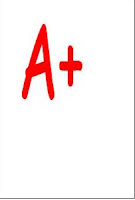An Argument for Choice
 |
| Photo Credit |
So we come to the genesis of this post. As I was reading The Art of Self Directed Learning by Blake Boles, my brain came to a screeching halt with chapter 4: Consensual Learning. The underlying premise of this chapter is that school ≠ choice. This was like a lightening flash for me. As I began to really reflect on this thesis, I realized that it was true. I also realized that it needs to change. Here is why:
In school, our job is to prepare our students for life. Knowing how to make healthy, appropriate choices is a crucial skill to life-time success. We can not effectively prepare students for life if all we do is tell them what to do and when to do it. Now, please do not think that I am arguing against structure. For many, structure is important, and especially for our younger kiddos, structure is part of preparing them for success. Structure isn't my issue. Lack of choice is my issue.
Once upon a time, school needed to prepare assembly workers for jobs. The brighter students would become managers of those assembly workers. And schools were preparing students to matriculate into an analog world. That reality has changed. Yes, we still need factory workers, but not as many because robots are now doing many of those jobs. So instead, we need to prepare students to create and program the robots that work the assembly lines. And we do still need to produce managers and leaders. But they are no longer managing and leading in an analog world. Our students need to be able to matriculate into a digital world. To do so means that rather than memorizing information about the Revolutionary War, they need to know how to effectively research aspects of the Revolutionary War and then craft that information into a coherent, meaningful product that engages, demonstrates, synthesizes.
Or memorizing the dates that you felt were tantamount to their understanding and appreciation of history (probably because your college professors told you these were the critical dates to know). Now, with the ability to look up this "basic" information, it is no longer important to know by heart the causes of the Revolutionary War or the order of the Presidents of the United States, or the year Reconstruction began. So here is the good news: now you can spend time discussing the legacy of historical events and people because the facts are easy to access. Wow! What a shift in approach. And discussing legacies opens up a whole slew of options because now there truly isn't one right answer. For example, the student who is of Californio descent will have a different interpretation of the legacy of Manifest Destiny than the student whose ancestors immigrated from Ireland and helped to build the Trans-Continental Rail Road. And what fun to facilitate those learning opportunities in class rather than drilling your students with names and dates! And how they demonstrate their learning might be a script or a video or a website or... how much fun to look forward to what your students create rather than dreading grading a pile of mediocre (at best) research papers on the same exact topic?
Today, we are preparing students for jobs that might not even exist yet. If that is the case, how can we pretend to know what they will need to know to succeed? Instead, we need to be infusing our teaching with larger, more far-reaching skills like the 4 Cs (critical thinking, communication, collaboration and creativity) and those emphasized in Common Core such as analysis, writing for an authentic audience, working with digital media and iterative learning. It is these skills that will serve our students best because these skills will create young adults who are agile, creative and willing to be risk-takers. Choice is what will develop these skills, not consent.
So how can we make our education system one that embraces agility and choice, rather than one that promotes complacency and consent? I look forward to finishing Boles' book and having more ideas and new perspectives to reflect on.



Comments
Post a Comment
Thanks for sharing your thoughts!